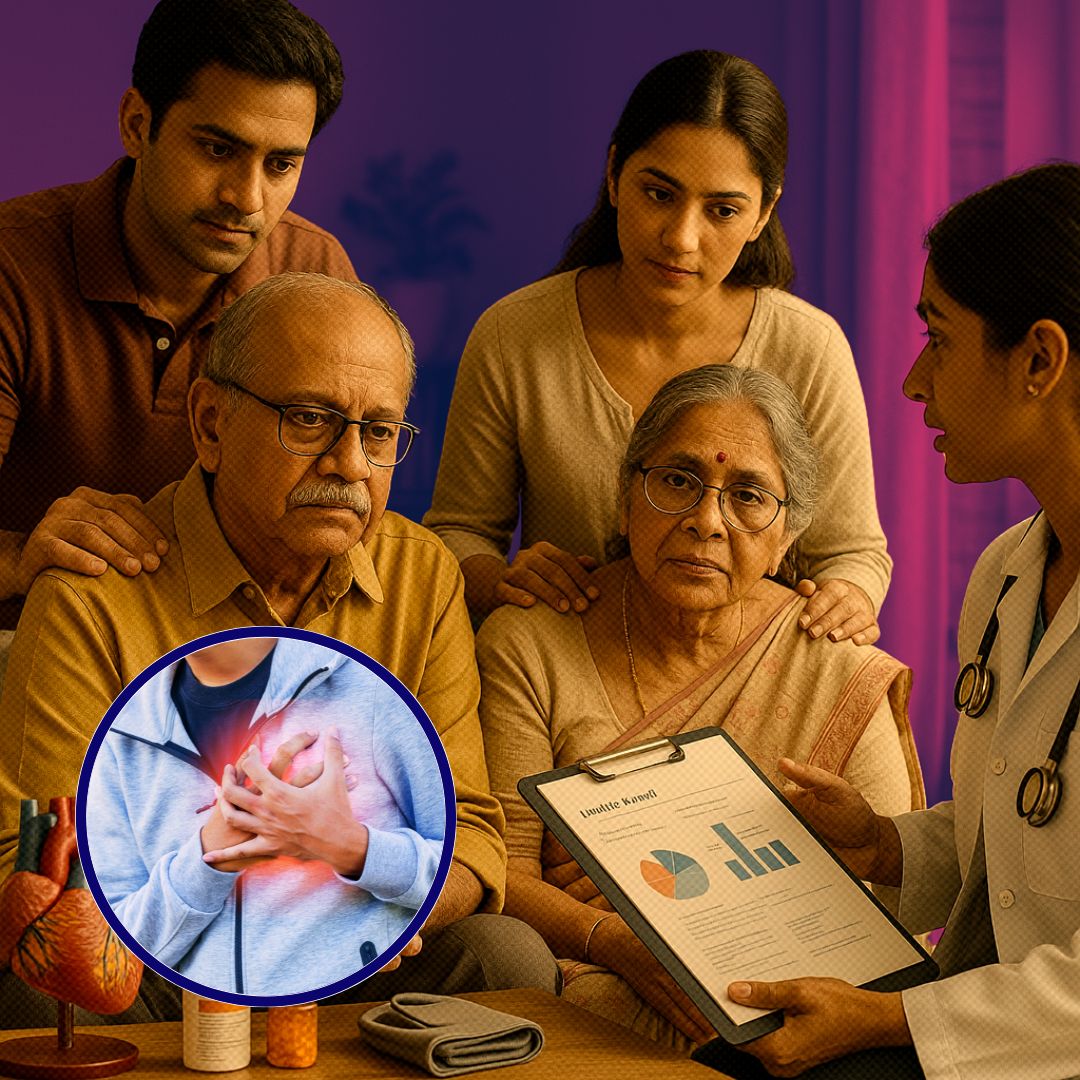A recent comprehensive study reveals that nearly half of older adults suffering from heart failure also endure multiple overlapping chronic conditions such as diabetes, chronic kidney disease, and metabolic disorders, which significantly worsen their health outcomes.
The research, involving over 1,100 patients aged 65 and above, shows that these overlapping illnesses lead to poorer physical function, higher rates of rehospitalisation, and increased mortality within two years.
Indian health experts and government officials have highlighted the urgent need for early screening, integrated care models, and accessible treatment strategies to address the growing health crisis among India’s ageing population, which is rapidly expanding and increasingly burdened by chronic diseases.
Multi-Morbidity Deepens Heart Failure Crisis Among Elderly
The study, led by cardiology experts from Japan and supported by Indian clinical data, found that 49.5% of elderly heart failure patients had two or three overlapping chronic kidney and metabolic (CKM) conditions, while only 17.3% had none.
Patients with multiple overlapping illnesses performed significantly worse on physical function assessments, such as walking speed and grip strength, which are critical indicators of overall health and independence. Dr. Nakade, the lead researcher, emphasised, “Early identification of patients with overlapping conditions allows healthcare providers to intervene sooner, potentially reducing hospital readmissions and improving long-term outcomes.”
Indian cardiologists echo this concern, noting that nearly a quarter of the elderly population in India suffers from multi-morbidities, with women disproportionately affected. Health officials from the Ministry of Health have called for the development and deployment of simple, cost-effective screening tools that can be used even in rural and resource-limited settings to identify at-risk individuals early.
Key Expert Advice Summarised:
- Vigilant Monitoring: Regularly watch for early warning signs, including swelling in extremities, unexplained shortness of breath, persistent fatigue, and sudden weight changes.
- Regular Check-ups: Schedule and attend routine medical check-ups, ensuring consistent communication with healthcare providers.
- Balanced Lifestyle: Adopt a balanced diet that includes plenty of fruits, vegetables, and lean proteins. Incorporate regular light exercises tailored to individual abilities.
- Medication Adherence: Strictly adhere to prescribed medications and follow dosage instructions carefully.
- Utilise Community Resources: Actively participate in community health camps, support groups, and available geriatric-specific services.
- Leverage Telemedicine: Use telemedicine services for continuous monitoring, consultations, and support, especially in remote areas.
- Family and Social Support: Cultivate strong family support networks, engage in social activities, and seek emotional support when needed.
A Growing Challenge for India’s Healthcare System
India’s elderly population is projected to reach approximately 159 million by the end of 2025, with chronic non-communicable diseases accounting for nearly half of the total disease burden. Heart failure alone affects an estimated 1.3 to 4.6 million Indians, according to the National Heart Failure Registry, with mortality rates varying widely depending on the underlying cause and presence of coexisting illnesses.
The registry reports that some forms of heart failure carry up to five times the risk of death compared to others, underscoring the complexity of managing these patients. Socioeconomic disparities, limited access to preventive healthcare, and fragmented treatment pathways further exacerbate the problem, especially in rural areas.
Health policymakers stress the importance of integrating assessments for overlapping CKM conditions into routine clinical practice to optimise healthcare resource allocation and improve patient outcomes. The Indian Heart Association has also advocated for multidisciplinary clinics and digital health solutions to enable better coordination of care for elderly patients with multiple chronic illnesses.
The Logical Indian’s Perspective
The Logical Indian believes that addressing the challenge of multi-morbidity in elderly heart failure patients requires more than just medical interventions—it demands a compassionate, holistic approach rooted in empathy, dignity, and social responsibility. Our ageing population deserves integrated healthcare systems that not only treat diseases but also support physical, emotional, and social well-being. We urge policymakers, healthcare professionals, and communities to collaborate in creating accessible screening programmes, comprehensive care models, and support networks for seniors. Such efforts will not only alleviate the burden on families and healthcare infrastructure but also foster a society where elders can live with respect and quality of life. How can we, as individuals and as a society, come together to ensure that elderly citizens facing the dual burden of heart failure and multiple chronic illnesses receive the care and compassion they deserve?











